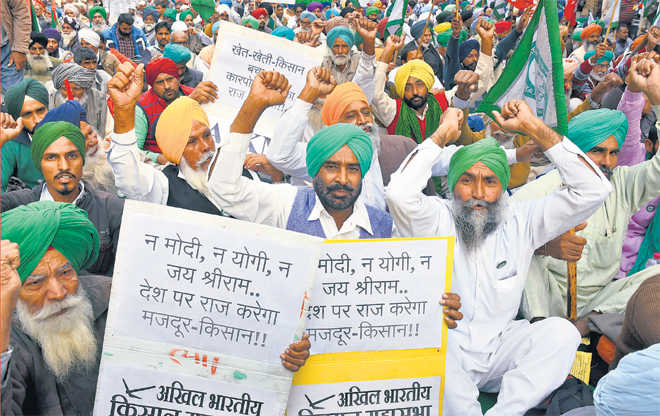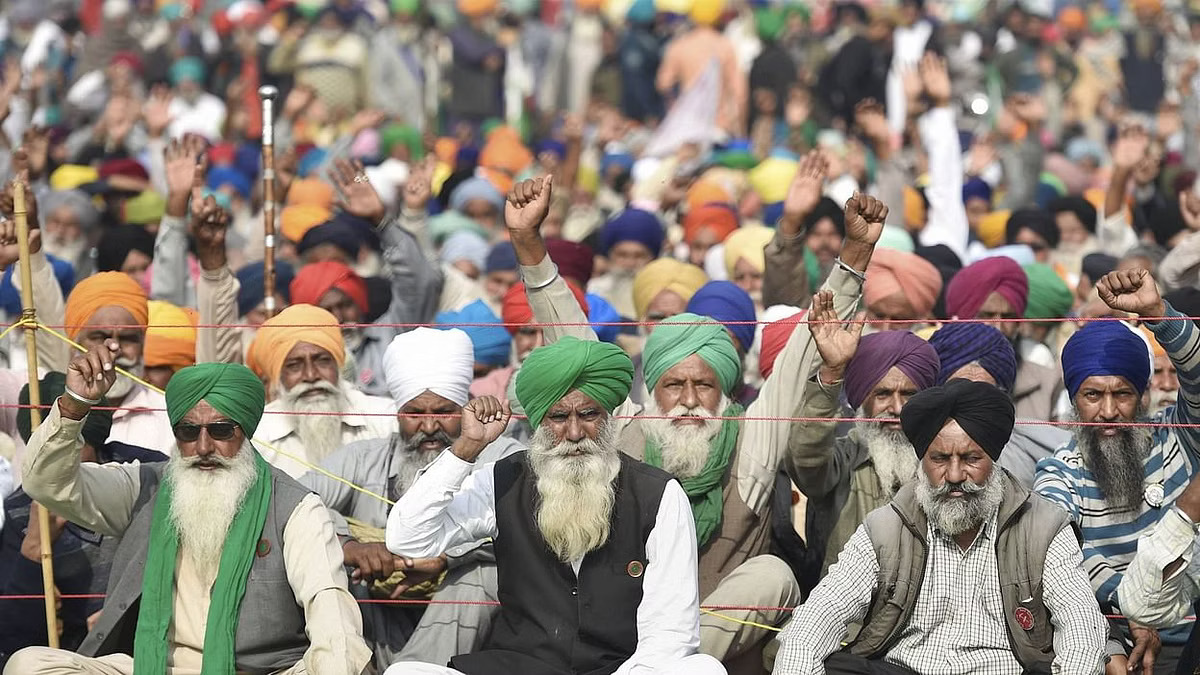The fertile plains of Punjab and Haryana are simmering with anger once more. Thousands of farmers have taken to the streets, blocking highways and holding demonstrations, their call echoing across the nation: guaranteed minimum support prices (MSP) for their crops. This isn’t a new demand, but it’s one that resonates deeply, born from years of struggle against market volatility, corporate exploitation, and government neglect.
Why are farmers demanding MSP?
Imagine toiling under the scorching sun, nurturing crops with your sweat and blood, only to see your harvest fetch a pittance in the market. This is the harsh reality for millions of Indian farmers, thanks to a system heavily tilted in favor of corporations and middlemen. The MSP is the price at which the government buys crops from farmers. This price acts as a safety net for farmers, ensuring they receive a fair price for their crops, particularly during times of market fluctuations or when market prices fall below the MSP.

Why are farmers protesting?
Imagine pouring your heart and soul into nurturing your land, only to be met with unpredictable market forces that leave you with meager profits, or worse, losses. This is the harsh reality for Indian farmers, who face fluctuating market prices for their crops, often below the cost of production. The MSP, a government-announced minimum price for certain crops, acts as a safety net, ensuring they receive a fair return for their labor. However, the current MSP system has been criticized for being ineffective and distortionary, as it often benefits wealthier farmers growing certain crops.
But why is the government hesitant?
The current administration touts free markets and argues that MSP distorts the market. This narrative, however, conveniently ignores the power imbalances inherent in the agricultural sector. Large corporations with deep pockets can manipulate markets, leaving small farmers at their mercy. MSP empowers farmers, giving them a fighting chance against exploitation.

What’s at stake?
This is not just about economics. It’s about the verysurvival of India’s rural communities. Farmers, the backbone of the nation, are being pushed to the brink. Mounting debt, rising input costs, and inadequate support systems are forcing them to abandon their land, migrate to cities, and leave their traditional way of life behind. This not only weakens the rural economy but also threatens food security for the entire nation.
A call for systemic change:
The farmers’ demands go beyond just MSPs. They are calling for acomplete overhaul of the agricultural system, one that prioritizes sustainability, fair trade practices, and empowers farmers. They demand:
- Investment in public infrastructure:Irrigation, storage facilities, and access to markets are crucial for farmers’ success.
- Debt relief and affordable credit:Crushing debt burdens trap farmers in a cycle of poverty.
- Land reform:Unequal land distribution and corporate land grabs exacerbate farmers’ vulnerabilities.
- Strengthening cooperatives:Collective bargaining power can shield farmers from exploitation.
- Focus on sustainable agriculture:Practices that protect the environment and ensure long-term soil health are essential.
Standing with the farmers:
This is not just a farmers’ struggle; it’s a fight for food sovereignty, social justice, and a sustainable future. We must stand with them in solidarity, demanding action from the government and holding corporations accountable. We can:
- Amplify their voices:Share their stories, raise awareness, and urge media to cover the protests fairly.
- Support farmers’ markets and local agriculture:Choose local, ethically sourced produce whenever possible.
- Pressure elected officials:Demand action on policies that support farmers and rural communities.
- Join the movement:Participate in solidarity rallies, donate to farmers’ organizations, and spread the word.
The seeds of discontent have been sown. But together, we can nurture them into a movement for systemic change, one that ensures a just and sustainable future for Indian farmers and for all. Remember,when farmers thrive, so does our nation.













